Know when to discuss schoolwork complaints with the teacher
Your child is fussing that an assignment is "stupid." But how do you know if you should contact the teacher? Get in touch with the teacher if your child refuses to do assigned work, even after you've tried motivating strategies. Or, if your child regularly finds the work too hard or too easy, or doesn't understand the instructions, even with your help. Also let the teacher know if your child needs school supplies you can't provide.
https://tpitip.com/?15iU17376
Your child is fussing that an assignment is "stupid." But how do you know if you should contact the teacher? Get in touch with the teacher if your child refuses to do assigned work, even after you've tried motivating strategies. Or, if your child regularly finds the work too hard or too easy, or doesn't understand the instructions, even with your help. Also let the teacher know if your child needs school supplies you can't provide.
https://tpitip.com/?15iU17376
Your support helps put academic success within your child’s reach
Some kids (and even some adults) believe that successful students are just born that way. But teachers know that students can learn and build the skills they need to do well in school. To help your child develop them, make learning a priority and provide lots of fun ways to do it. Maintain a balance in your child’s life between school and sports, work and play. And if your student is struggling, work with the teacher on a plan to help.
https://tpitip.com/?15iT17376
Some kids (and even some adults) believe that successful students are just born that way. But teachers know that students can learn and build the skills they need to do well in school. To help your child develop them, make learning a priority and provide lots of fun ways to do it. Maintain a balance in your child’s life between school and sports, work and play. And if your student is struggling, work with the teacher on a plan to help.
https://tpitip.com/?15iT17376
☕🧁 Teacher Appreciation Alert! 🧁☕
Our teachers give their hearts every single day, and this week we wanted to give back in a small but sweet way. 💛 Nothing says “thank you” like warm coffee and muffins to start the morning off right!
Thank you, teachers, for your dedication, love, and endless hard work—you truly make a difference! 🌟🍎
#TeacherAppreciation #WeLoveOurTeachers #CoffeeAndMuffins

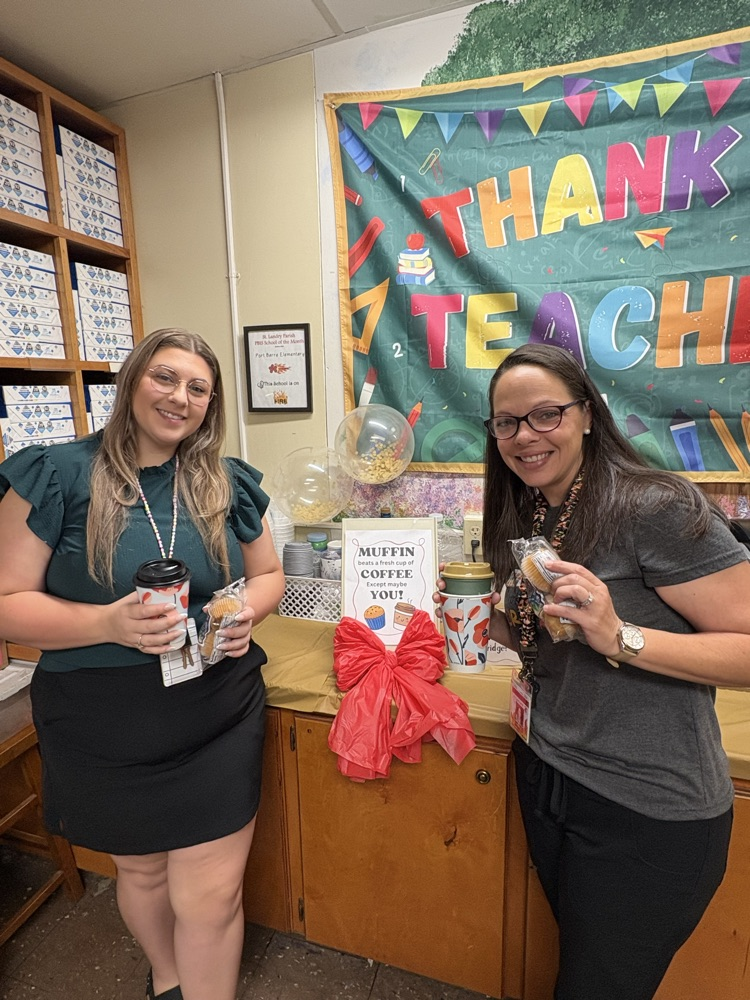
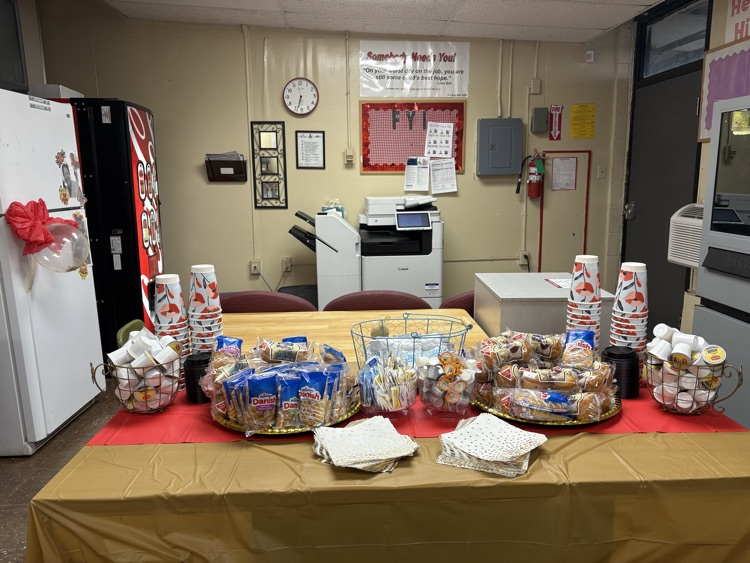
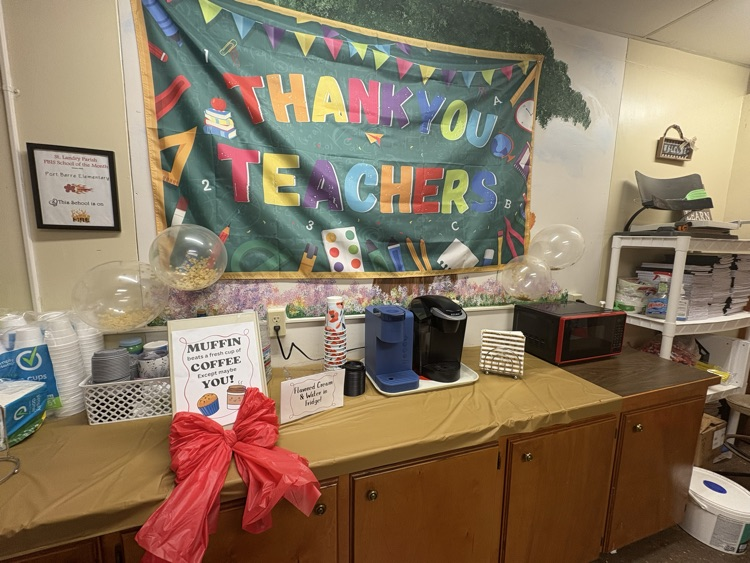
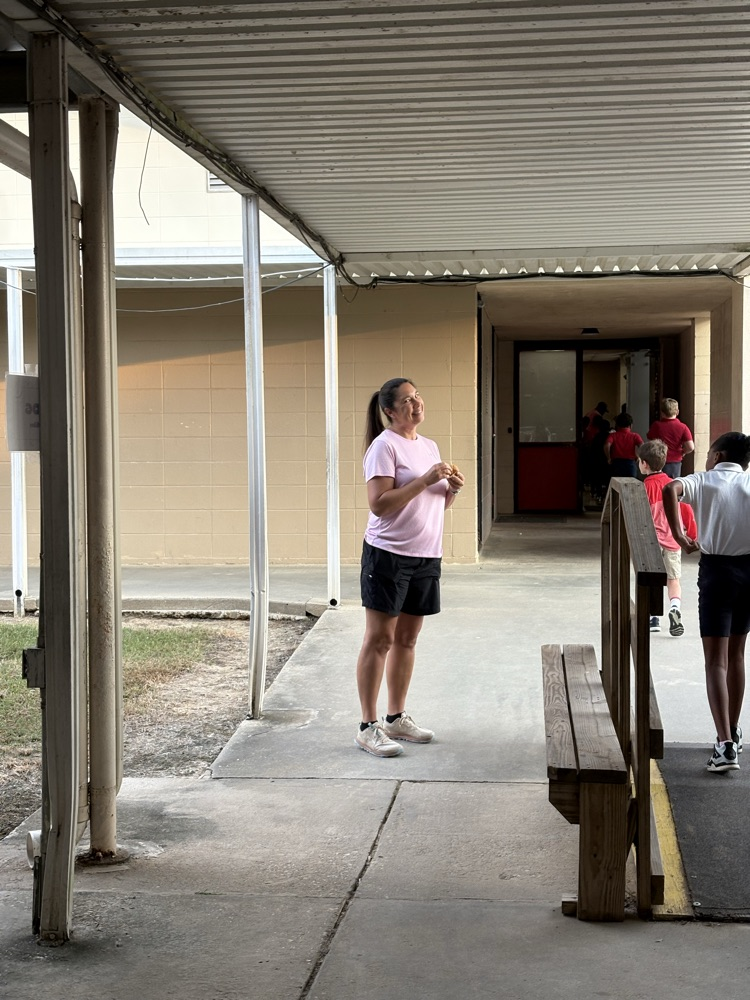
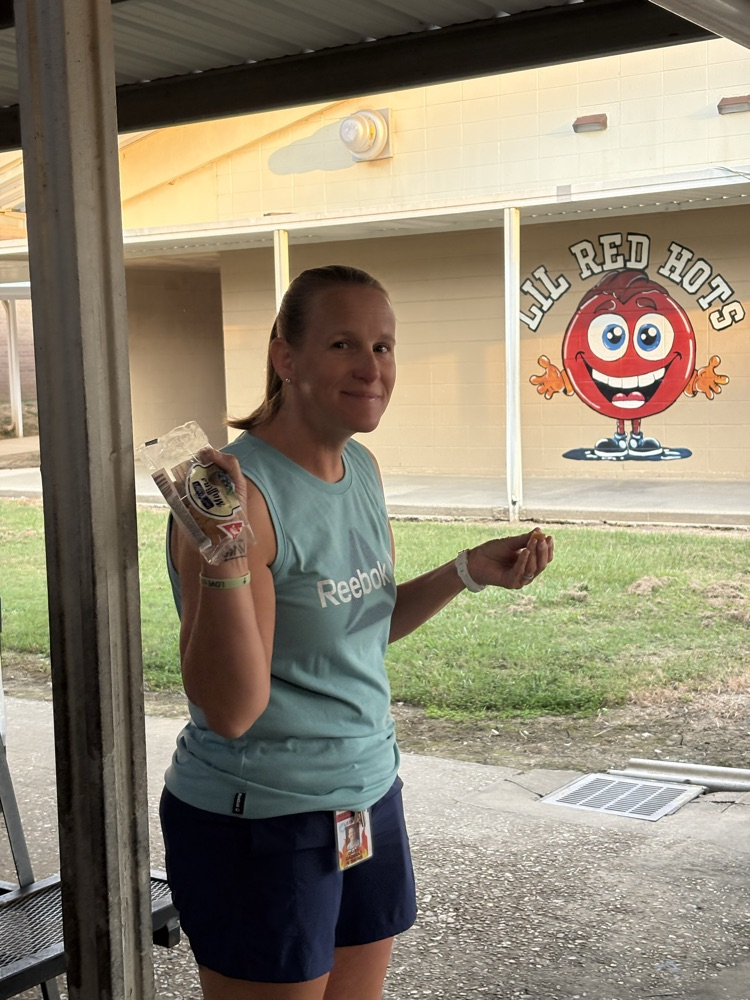
Teach your child the rules of school bus safety
Although school buses are the safest way for children to get to school, it's still important to make sure your child follows bus safety rules. Here are just a few: Wait in a safe place away from the traffic. Never walk behind the bus. Don't stick hands, heads or objects out the windows. Don't push and shove. Walk three "giant steps" (six feet) away from the side of the bus. Wait until the driver says it's safe to get off the bus.
https://tpitip.com/?15iS17376
Although school buses are the safest way for children to get to school, it's still important to make sure your child follows bus safety rules. Here are just a few: Wait in a safe place away from the traffic. Never walk behind the bus. Don't stick hands, heads or objects out the windows. Don't push and shove. Walk three "giant steps" (six feet) away from the side of the bus. Wait until the driver says it's safe to get off the bus.
https://tpitip.com/?15iS17376
Port Barre Elementary will have their Fall Picture Day on Friday, September 19, 2025. Students should wear a school uniform or spirit shirt for the pictures.

Help your child turn dreams into goals
Maybe your child wants to be on the honor roll or be elected class president. Setting goals is the first step to achieving dreams. Effective goals are specific. Encourage your child to aim high, but still be realistic. Have your student write down goals, post them and look at them each day. Seeing a personal goal to get a B on the next math test can motivate your child to put effort into math during study time.
https://tpitip.com/?15iR17376
Maybe your child wants to be on the honor roll or be elected class president. Setting goals is the first step to achieving dreams. Effective goals are specific. Encourage your child to aim high, but still be realistic. Have your student write down goals, post them and look at them each day. Seeing a personal goal to get a B on the next math test can motivate your child to put effort into math during study time.
https://tpitip.com/?15iR17376
Start routines to make school mornings smoother
Getting back into school mode after a long summer break can be a challenge for some children. To help your child make the transition, establish some daily routines. Explain the tasks you want your child to do and post a schedule so your child knows what to do when. To further boost independence, use silent signals sometimes, such as a gentle touch on your student's shoulder to indicate that it's time to calm down or pay attention.
https://tpitip.com/?15iQ17376
Getting back into school mode after a long summer break can be a challenge for some children. To help your child make the transition, establish some daily routines. Explain the tasks you want your child to do and post a schedule so your child knows what to do when. To further boost independence, use silent signals sometimes, such as a gentle touch on your student's shoulder to indicate that it's time to calm down or pay attention.
https://tpitip.com/?15iQ17376
Wednesday, September 17, 2025, is an Early Dismissal Day for staff professional development. Bus riders will begin boarding around 12:00 noon and car riders will follow once buses leave campus around 12:10 pm. All students should be picked up before 12:30 pm to allow for staff to attend professional development. We appreciate your understanding.
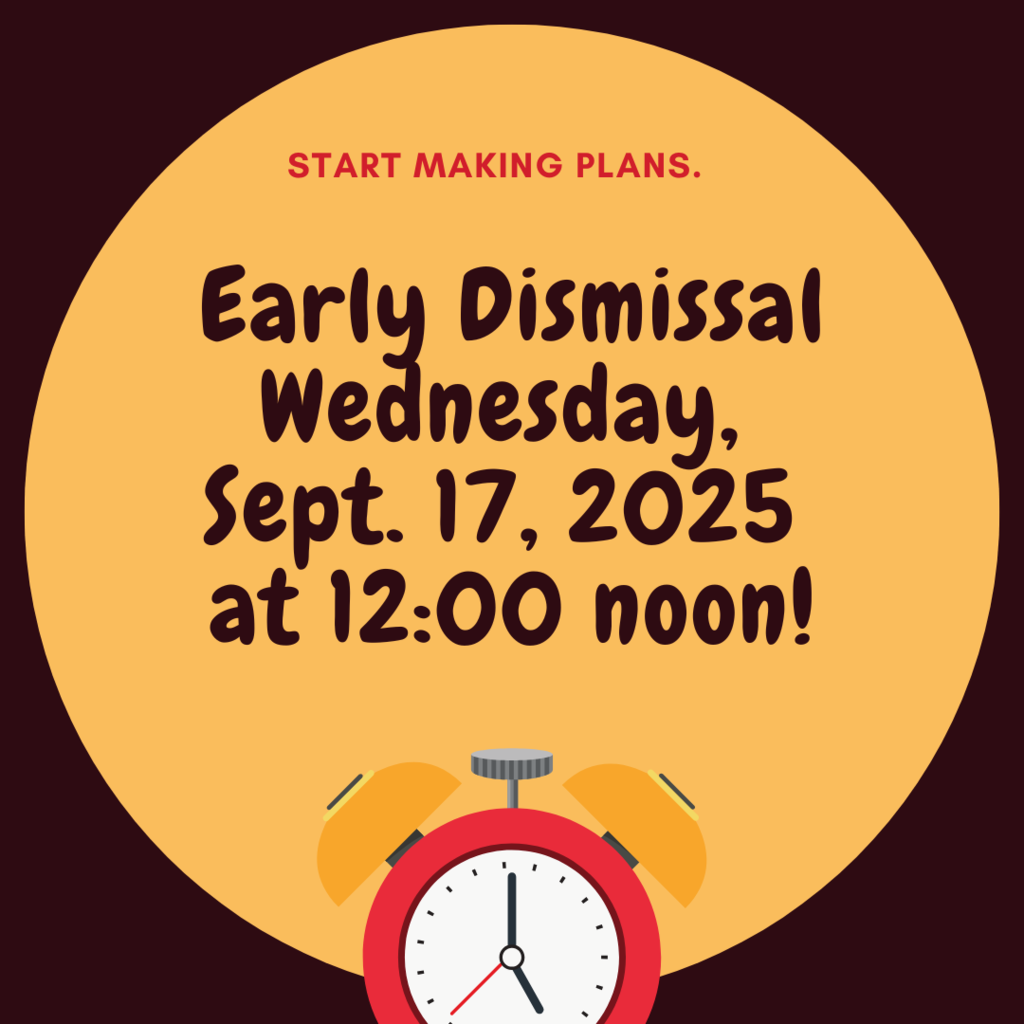
Limiting excess screen use improves chances of school success
Is the TV on constantly when your child is home? Does family conversation center on TV shows or digital games and their characters? Does your child choose to watch TV or play video or online games even when friends are available to play? If you answered "yes" to these questions, your child may be overdosing on recreational screen activities. Set limits and encourage active screen-free alternatives.
https://tpitip.com/?15iP17376
Is the TV on constantly when your child is home? Does family conversation center on TV shows or digital games and their characters? Does your child choose to watch TV or play video or online games even when friends are available to play? If you answered "yes" to these questions, your child may be overdosing on recreational screen activities. Set limits and encourage active screen-free alternatives.
https://tpitip.com/?15iP17376
Calling all parents and family members! We are excited to invite you to our first Parent and Family Engagement Parent Advisory Council Virtual Meeting on Wednesday, September 17th, 2025, at 5:30 PM.
This is a great opportunity to connect, share ideas, and learn how we can work together to make this a fantastic year for our students. Mark your calendars—we can't wait to see you online! Here is the link to join: https://us02web.zoom.us/j/88956690440?pwd=5WBxVr5HOzKJVbxT5zXB9VY9vlhx10.1
RSVP here: https://docs.google.com/forms/d/e/1FAIpQLScHXMsEPR8Bv_MxNNeY4cL4BRw7s8ntcaBAu_adplrKNT6k9w/viewform
This is a great opportunity to connect, share ideas, and learn how we can work together to make this a fantastic year for our students. Mark your calendars—we can't wait to see you online! Here is the link to join: https://us02web.zoom.us/j/88956690440?pwd=5WBxVr5HOzKJVbxT5zXB9VY9vlhx10.1
RSVP here: https://docs.google.com/forms/d/e/1FAIpQLScHXMsEPR8Bv_MxNNeY4cL4BRw7s8ntcaBAu_adplrKNT6k9w/viewform
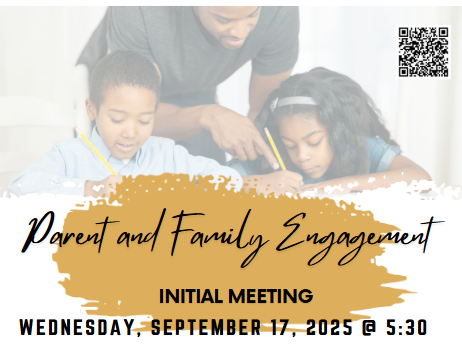
Use a variety of methods to encourage reading
By the ages of seven and eight, many children are starting to read chapter books on their own. Other kids, however, are losing interest in reading. To keep reading enthusiasm alive, look for books on your child's interests. Or, share books you loved at your child's age. You might also get a craft book and make a project together, or try interactive books that let your student direct the story. To boost reading confidence, ask your elementary schooler to read to a younger child.
https://tpitip.com/?15iO17376
By the ages of seven and eight, many children are starting to read chapter books on their own. Other kids, however, are losing interest in reading. To keep reading enthusiasm alive, look for books on your child's interests. Or, share books you loved at your child's age. You might also get a craft book and make a project together, or try interactive books that let your student direct the story. To boost reading confidence, ask your elementary schooler to read to a younger child.
https://tpitip.com/?15iO17376
Updated: Please check out this week's newsletter for important information.
https://secure.smore.com/n/072ja
Read more about:
- Wednesday, September 17 - Early Dismissal at 12:05 pm.
- Friday, September 19 - Picture day - Students should wear a school uniform or spirt shirt for the pictures.
https://secure.smore.com/n/072ja
Read more about:
- Wednesday, September 17 - Early Dismissal at 12:05 pm.
- Friday, September 19 - Picture day - Students should wear a school uniform or spirt shirt for the pictures.
Please check out this week's newsletter for important information.
https://secure.smore.com/n/tzjax
Read more about:
- Wednesday, September 17 - Early Dismissal at 12:05 pm.
- Friday, September 19 - Picture day - Students should wear a school uniform or spirt shirt for the pictures.
https://secure.smore.com/n/tzjax
Read more about:
- Wednesday, September 17 - Early Dismissal at 12:05 pm.
- Friday, September 19 - Picture day - Students should wear a school uniform or spirt shirt for the pictures.
🔥 We have made it through the first month of school! 🔥 With a red-hot staff like ours, we are off to an amazing start! 🎉 Let’s take a moment to show some love and appreciation. ❤️
👇 Check out a few shout-outs from staff to staff ! 👏
Let’s keep the positivity going — drop a comment below to shout out a staff member who has made a difference this month! 🙌
#RedHotStaff #WeAppreciateYou #StrongerTogether
👇 Check out a few shout-outs from staff to staff ! 👏
Let’s keep the positivity going — drop a comment below to shout out a staff member who has made a difference this month! 🙌
#RedHotStaff #WeAppreciateYou #StrongerTogether

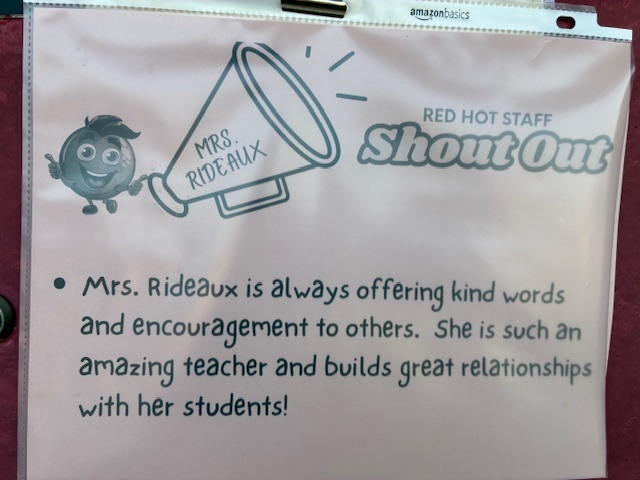
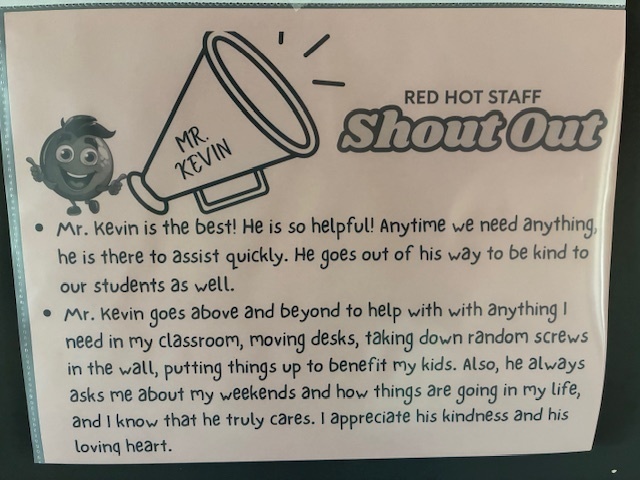
🎉 We Did It! 🎉 We are excited to share that we met our attendance goal of 95% or higher for the week of September 8–12! 🙌
🎉 To celebrate, students may wear SPIRIT SHIRTS EVERY DAY this week!
Here’s how we did each day (including late arrivals and early check-outs):
Monday, Sept. 8 – 94.56%
Tuesday, Sept. 9 – 97.87%
Wednesday, Sept. 10 – 96.09%
Thursday, Sept. 11 – 97.04%
Friday, Sept. 12 – 94.31%
🎯 Weekly Average: 95.57% — We made it!
Thank you, families, for helping us reach this important milestone. Attendance is very important — every minute and every day counts! Let’s keep pushing to stay above 95% every day! 💪
🎉 To celebrate, students may wear SPIRIT SHIRTS EVERY DAY this week!
Here’s how we did each day (including late arrivals and early check-outs):
Monday, Sept. 8 – 94.56%
Tuesday, Sept. 9 – 97.87%
Wednesday, Sept. 10 – 96.09%
Thursday, Sept. 11 – 97.04%
Friday, Sept. 12 – 94.31%
🎯 Weekly Average: 95.57% — We made it!
Thank you, families, for helping us reach this important milestone. Attendance is very important — every minute and every day counts! Let’s keep pushing to stay above 95% every day! 💪
Better late than never! Congratulations to our August Lil Red Hots of the Month. Congratulations to the one and only Ms. Natalie for being nominated as our Red Hot Staff of the month. We are so proud of every single one of you. Keep up the amazing work!
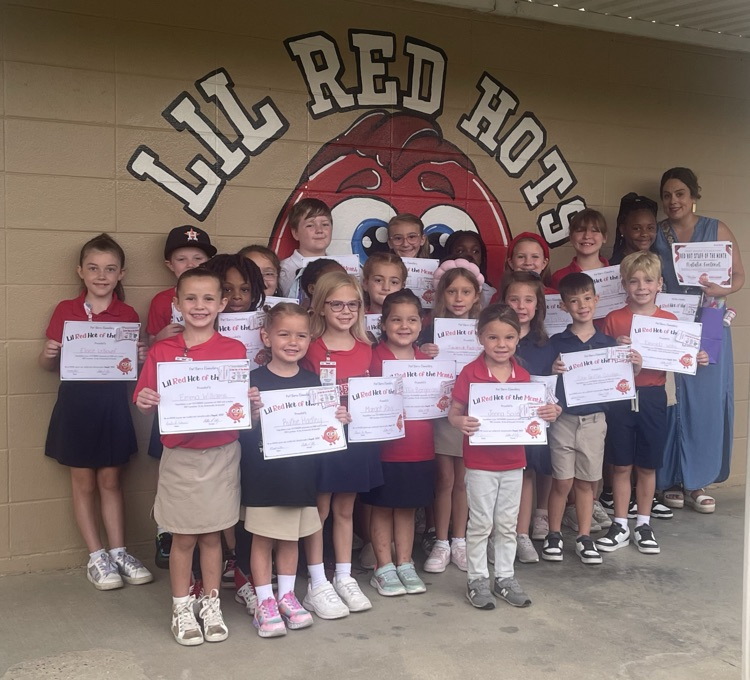

Port Barre Elementary will have a popcorn sale on tomorrow, Friday, September 12, 2025 for $1.00 a bag. Please send money with your child in the morning.
2nd, 3rd and 4th graders participate in Marathon Kids program once a week. It tracks their laps while they walk or run and listen to music.
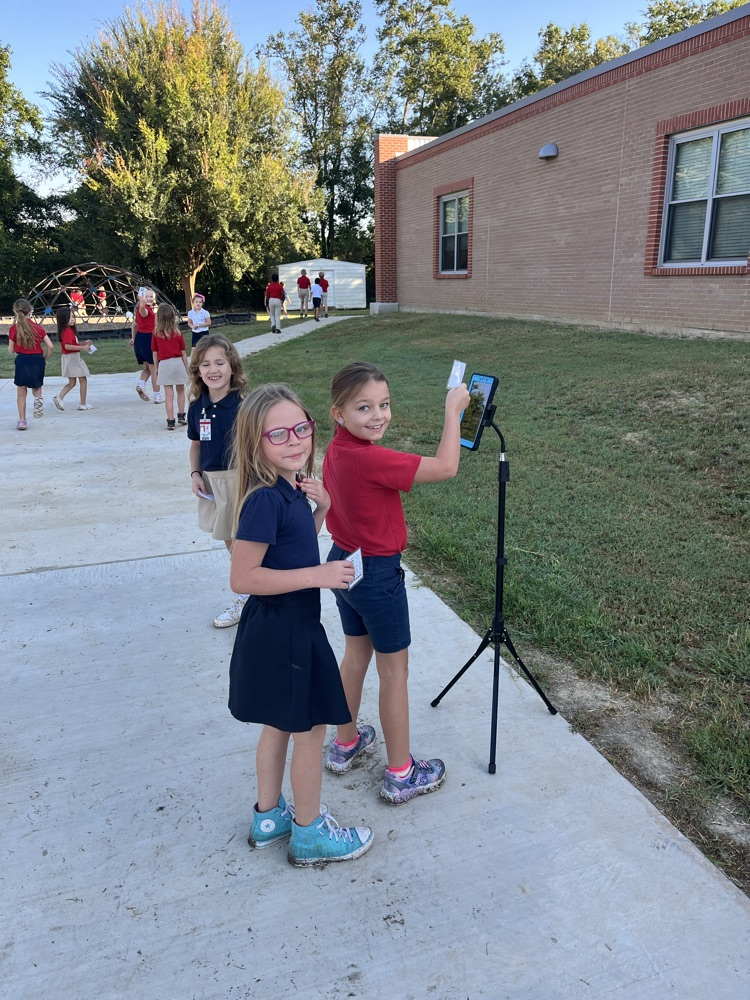
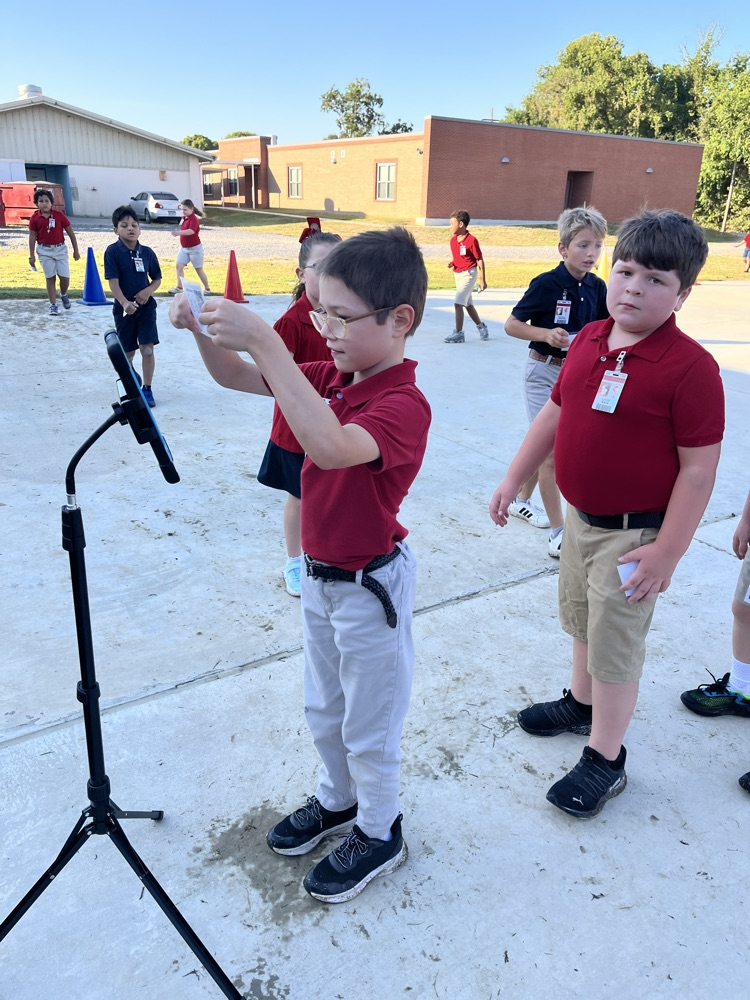
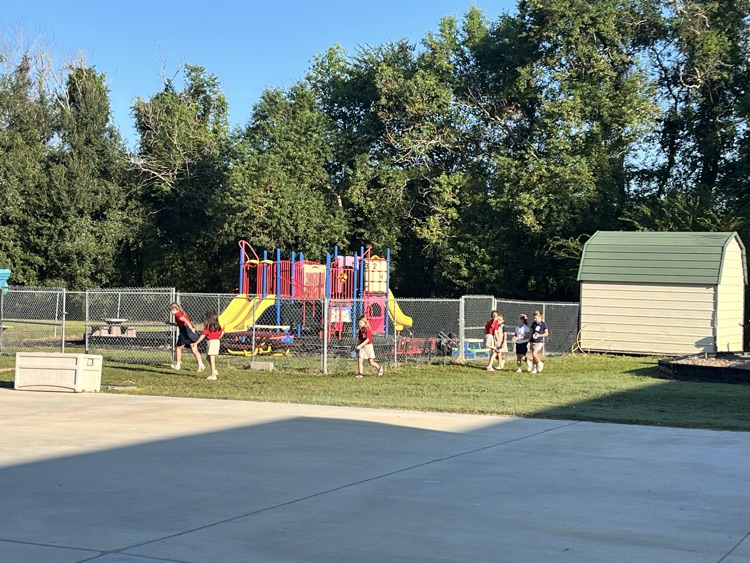
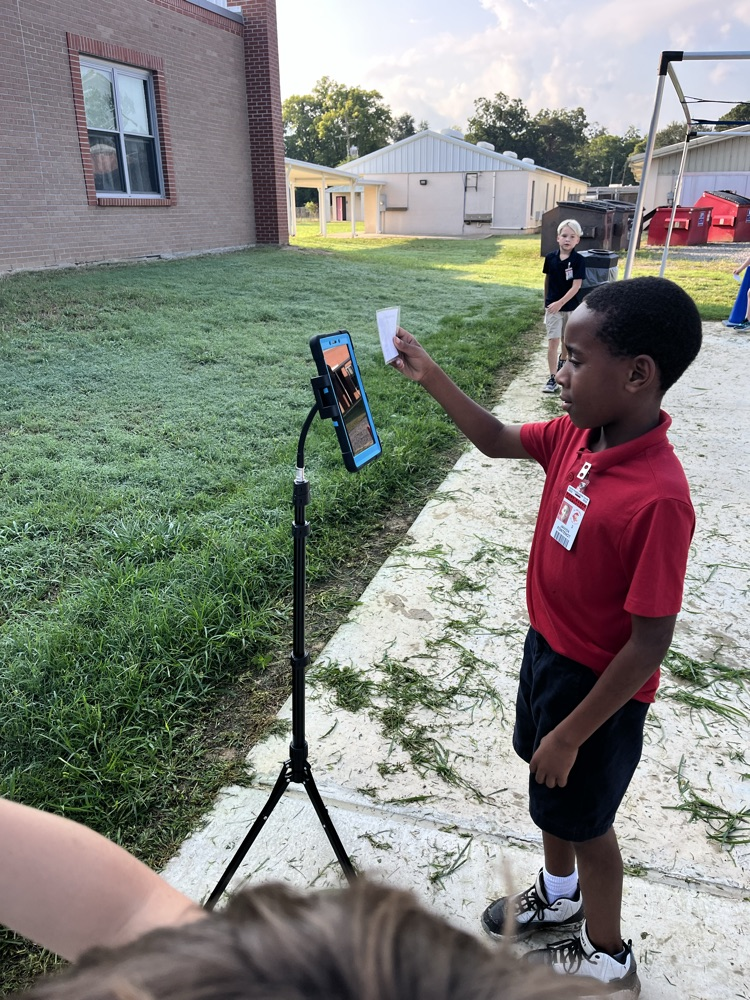
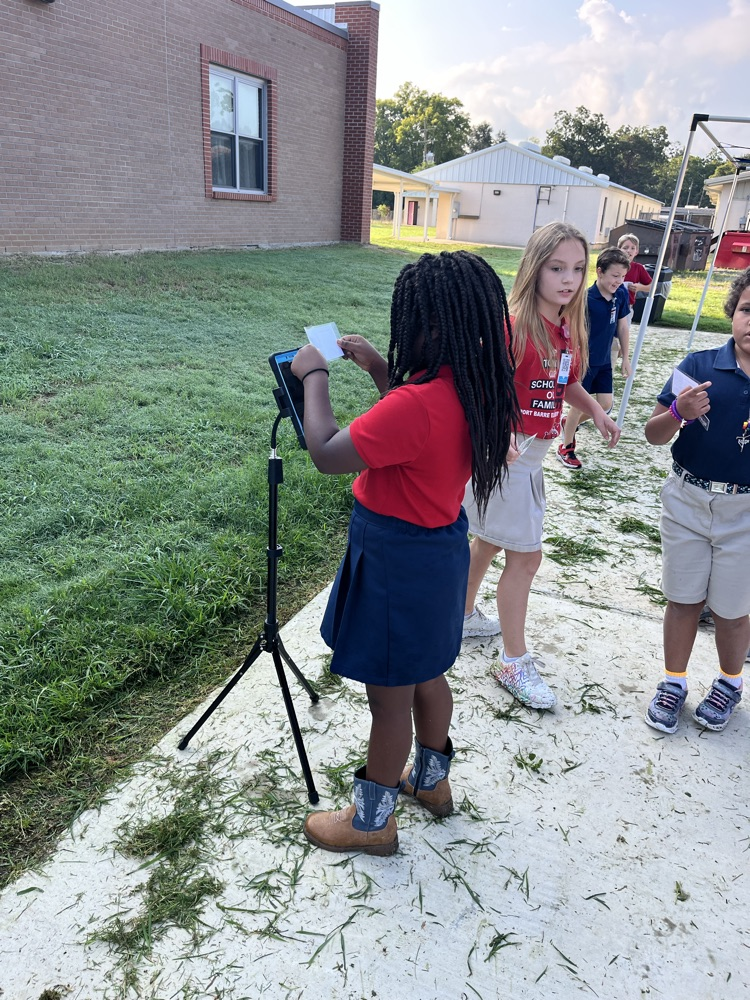
Port Barre Elementary will have a popcorn sale on Friday, September 12, 2025 for $1.00 a bag. Please send money with your child in the morning.

Please check out this week's newsletter for important information.
https://secure.smore.com/n/tzjax
Read more about:
- Friday, September 12 - Popcorn sale for $1
- Attendance is important. Our school attendance goal is to maintain 95% attendance rate. We did not make it this week. Please help us maintain this goal by sending your student to school for the entire day. Every minute counts!
https://secure.smore.com/n/tzjax
Read more about:
- Friday, September 12 - Popcorn sale for $1
- Attendance is important. Our school attendance goal is to maintain 95% attendance rate. We did not make it this week. Please help us maintain this goal by sending your student to school for the entire day. Every minute counts!
